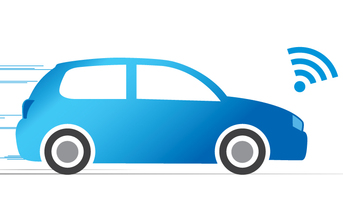
Over the last few years, automotive electronics and wireless technologies have grown by leaps and bounds. Advancements in these technologies, combined with
device convergence and changing lifestyle demands, are enabling the automobile to extend the driving experience beyond traditional vehicle transport. Today, the 'Connected Car' zooms beyond traditional in-vehicle infotainment. The connected car may well have faced challenges in taking off, but the inflection point is just around the corner. The next wave of connected cars will see businesses leverage technology to address issues of urbanisation— road congestion, pollution and safer mobility. The features of a connected car are now a part of a car buyer's basic expectation. With the help of digital technologies, greater personalisation will be the next move for businesses to stand out in this industry. In emerging markets, millennials with growing purchasing power do not view cars as mere means of transport. The car is becoming an extension of consumer individuality and consumers want to travel in the most efficient and entertaining way possible.
Transcending boundaries
The connected car, as a concept, is branching out into multiple areas of consumer convenience such as seamless urban mobility, assisted driving, driverless cars, and car-sharing. These are targeted at addressing issues such as road congestion and driving stress, and offering better freedom of mobility to senior and differently-abled citizens. Moreover, the connected car initiative is a collaborative effort between different technologies and competencies. The broad array of end-to-
end connected car solutions and services can be categorised from the car OEM standpoint as 'Inside the Car' (in-vehicle systems development, testing and implementation), 'Outside the Car' (consumer-facing apps, integration with dealer/
OEM systems, etc.), and 'Around the Car' (urban mobility, cross-industry monetisation, etc).
(Continued on next page)



























